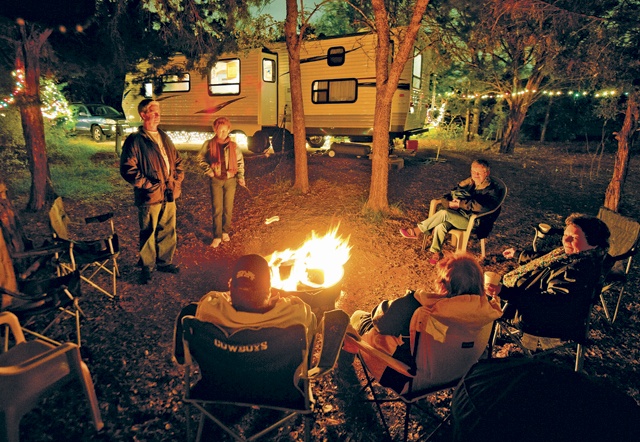The opportunity to take a vacation in the great outdoors, spending some time under the stars, and lounging around a campfire is something a lot of us look forward to. Yet, sometimes, we can have impacts on the land and wildlife that we didn’t anticipate- noise, crowding, trash, poor sanitation, and trampling all affect the environment long after our vacation has ended. A love for the outdoors should be accompanied with practices that preserve the outdoor experiences and the qualities of those experiences. Being a courteous and conscientious outdoorsman can help preserve those beautiful places you love for yourself, and for generations to come. Here are 5 tips to help reduce your impact while camping:
- Pack it In, Pack it Out: trash and food scraps that are left behind increases the chance of water pollution, could potentially spread disease, and attract wildlife. When wildlife begins to associate humans with food, their natural behavior is altered, which can carry serious long-term effects. Even banana peels, apple cores, and other items typically considered biodegradable should be taken out with your trash. If you brought it with you, take it out with you too. And hey, if you find something that someone else left behind, pack that out too. It never hurts to do a little extra for Mother Nature! Reduce trash by repackaging food and plan your meals so you don’t have leftover
- Respect Wildlife: Helping wildlife stay wild is important. The odds are already stacked against them- with loss of habitat, invasive species, pollution, poaching, and disease. Wildlife needs outdoor enthusiasts who will promote their survival, rather than add to these difficulties. Observe animals from a distance with binoculars or a macro lens. If you see an animal’s behavior change due to your presence, you’re too close. Prior to your trip, determine what equipment you will need to store your food out of the reach of animals. This could be bear canisters, ropes for hanging, or plastic containers to keep rodents away.
- Leave what you find: kids often like to build forts and take home lizards or turtles as pets. People of all ages like to pocket seashells, flowers, arrowheads, and interesting rocks. The problem with collecting is that it changes the aesthetic of the site and can have long-lasting impacts on the ecology or culture of a location. Just imagine the cumulative impact if everyone took something home! Alternatively, capture the magic of unaltered nature and take as many pictures as you would like.
- Stick to well established trails, avoid faint trails, and travel in a single file line. This is particularly important on muddy or rutted trails. Sticking to the established trail helps to protect the plants, soil, and those tiny creatures underfoot.
- Minimize campfire impacts by keeping campfires small and burning them for a short time to conserve wood. Bring your own firewood or, if allowed, collect only dead and downed wood. Burn all wood and charcoal completely to ash before putting out. Consider carrying and using a stove instead, substituting candle lanterns for campfire, or enjoying the nighttime without lighting.


